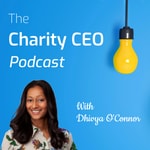NSPCC Learning Podcast – Details, episodes & analysis
Podcast details
Technical and general information from the podcast's RSS feed.

NSPCC Learning Podcast
NSPCC Learning
Frequency: 1 episode/29d. Total Eps: 80

Recent rankings
Latest chart positions across Apple Podcasts and Spotify rankings.
Apple Podcasts
🇬🇧 Great Britain - government
29/07/2025#22🇩🇪 Germany - government
29/07/2025#81🇬🇧 Great Britain - government
28/07/2025#16🇩🇪 Germany - government
28/07/2025#71🇬🇧 Great Britain - government
27/07/2025#31🇩🇪 Germany - government
27/07/2025#56🇬🇧 Great Britain - government
26/07/2025#22🇩🇪 Germany - government
26/07/2025#36🇬🇧 Great Britain - government
25/07/2025#26🇬🇧 Great Britain - government
23/07/2025#76
Spotify
No recent rankings available
Shared links between episodes and podcasts
Links found in episode descriptions and other podcasts that share them.
See all- http://goo.gl/YmnOAx
86 shares
- https://www.childline.org.uk/
47 shares
- https://www.tnlcommunityfund.org.uk/
32 shares
RSS feed quality and score
Technical evaluation of the podcast's RSS feed quality and structure.
See allScore global : 52%
Publication history
Monthly episode publishing history over the past years.
64: The voice of the child in social work practice
Episode 64
lundi 29 juillet 2024 • Duration 28:37
In this episode, three consultant social workers from the NSPCC’s Quality and Practice team discuss: what we mean by ‘the voice of the child’ and why it is important; how to effectively capture the voice of the child and what barriers might get in the way of this; how to make use of the child’s voice in practical work, including in meetings, assessments, interventions and record keeping.
You can read this episode’s transcript on the NSPCC Learning website.
💬 About the speakers
Julian Fabian has been a qualified Social Worker for more than 26 years. He is currently Consultant Social Worker in the NSPCC’s Quality and Practice Team with a remit of quality assurance and practice improvement.
Emily Waddington is a Supervisor in the Childline Service. Prior to this role, Emily has worked as a Consultant Social Worker at the NSPCC and in the Assessment and MASH teams in the Local Authority. Emily’s main areas of interest include systemic and reflective practice which is underpinned by a desire for continuous practice improvement.
Damien Fitzpatrick is a NSPCC Consultant Social Worker based in the Service Quality and Practice Team. His role involves quality assurance of direct practice through a safeguarding lens, pre-post inspection support, supporting the development and implementation of practice standards and guidance. Prior to joining the NSPCC, Damien practiced in the local authority for 12 years in a number of different roles.
📚 Related resources
> Find out what case reviews highlight about the voice of the child
> Listen to our podcast episode on pre-birth assessments
> Learn more about what makes a good assessment with our ten practice points
> Discover other NSPCC Learning resources for social workers
Intro/outro music is Lights by Sappheiros
63: Supporting d/Deaf children: putting the child at the centre of decision making
Episode 63
vendredi 31 mai 2024 • Duration 37:17
In this podcast episode, a panel of experts from the Social Workers with Deaf Children and Professionals Working Group explore how the differing language and communication needs of d/Deaf children can affect their safety and the child protection support they receive.
📺 A fully accessible video version of this podcast is available on the NSPCC Learning YouTube channel. 📺
You can also read this episode’s transcript on the NSPCC Learning website.
💬 About the speakers
Shirley Wilson MBE is the NSPCC's Senior Consultant on Deaf & Disabled Children and Young People and Professional Service Delivery Chair of the Social Workers with Deaf children and professionals group.
Jo Hornsby is a Social Worker in the Disabled Children and Young People’s Team in Suffolk and a member of the Social Workers with Deaf Children group.
Professor Alys Young is Head of Social Work at the University of Manchester and a member of the Social Workers with Deaf Children group.
Tim Richardson is the Provider Collaborative Lead on the West Yorkshire Health and Care Partnership Children and Young People’s Mental Health Strategic Plan and a member of the Social Workers with Deaf Children group.
📚 Resources mentioned in this episode
> Read the full Guidance for Safeguarding Partners in England - Deaf Children, Young People and their Families document (PDF)
> Learn more about safeguarding d/Deaf and disabled children and young people
> Read our learning from case reviews briefing on d/Deaf children and children who have disabilities
> Take our training course on safeguarding d/Deaf and disabled children and young people in England
Intro/outro music is Lights by Sappheiros
59: Supporting new parents through adversity – part one
Episode 59
lundi 13 novembre 2023 • Duration 26:46
New parents who experience adversity, such as domestic abuse, may need additional help to build these support networks for their child.
This is the first part in a two-part podcast discussion focusing on For Baby’s Sake, a service which provides therapeutic and trauma-informed support to expectant parents who have experienced domestic abuse.
You'll hear from Ged Docherty, a Team Manager at For Baby’s Sake Blackpool, and Colin Smy, Development Manager at Blackpool Better Start. The discussion explores how early intervention services can support families through adversity and give babies the best start in life.
Part two is available here.
You can read this episode’s transcript on the NSPCC Learning website.
💬 About the speakers
Colin Smy is Development Manager at Blackpool Better Start. Blackpool Better Start is a 10-year National Lottery funded programme to transform services in the town and change childhoods through lived experience, science, and evidence. The Centre for Early Child Development is the research and development hub of Blackpool Better Start, and provides a whole systems approach to delivering universal services, early help, and specialist support.
Ged Docherty is Team Manager at For Baby’s Sake. For Baby’s Sake is a programme for expectant parents that takes a whole-family approach, starting in pregnancy and dealing with the entire cycle and history of domestic abuse, identifying and directly addressing the trauma or traumas that lie at the heart of the problem.
📚 Related resources
> Find out more about For Baby’s Sake
> Find out more about Blackpool Better Start
> Learn more about how childhood trauma affects child brain development
> Take the NSPCC’s elearning course on trauma and child brain development
> Take the NSPCC’s safeguarding elearning course for anyone working with under 1s and families in the antenatal or postnatal period
Intro/outro music is Lights by Sappheiros
58: Building an evidence base for social work
Episode 58
lundi 9 octobre 2023 • Duration 23:35
Knowledge gained from research and practical experience should be used to ensure decisions about safety and risk are well-informed and ethical.
In this podcast episode, a panel of experts from the NSPCC discuss how social workers can build and maintain an evidence base to support their work.
You can read this episode’s transcript on the NSPCC Learning website.
💬 About the speakers
Julian Fabian is a Consultant Social Worker with the NSPCC. He works across all their direct services for children in the areas of quality assurance, practice improvement, and training.
Gurpreet Dosanjh-Bhatt is a Consultant Social Worker with the NSPCC looking at audit and review practice standards. She previously worked in the NSPCC as a children's services practitioner.
Holly Bentley is the Knowledge Manager within the NSPCC's Library and Information Service, producing written content on safeguarding and child protection for professionals.
📚 Resources mentioned in this episode
> Find out more about the NSPCC Library and Information Service
> Search the national case review repository
> Browse the collection of learning from case reviews briefings
> Browse the collection of CASPAR briefings on important safeguarding topics
> Take the NSPCC's learning from case reviews training course
> Subscribe to CASPAR, our safeguarding child protection email newsletter
> View the social work Professional Capabilities Framework on the British Association of Social Workers (BASW) website
> Listen to the Let's Talk Social Work podcast from BASW
The websites for Research in Practice and Foundations (a merger of the Early Intervention Foundation and What Works for Children's Social Care) also have a range of resources relating to social work evidence.
Intro/outro music is Lights by Sappheiros
57: What's next for children's social care in England? A practical perspective
Episode 57
lundi 11 septembre 2023 • Duration 29:24
Earlier this year, the UK government published its vision for the reform of children's social care in England: Stable homes built on love.
The strategy sets out a number of proposals to family support and early help services, including the rollout of new multi-disciplinary family help teams to provide earlier support to families so they don't reach crisis point.
In this podcast episode three experts from the NSPCC consider what the government’s proposals might look like in practice.
The discussion covered:
- the planned reforms to family support and early help services
- what new multi-disciplinary family help teams might look like
- the benefits and challenges of taking a family-first approach to social care
- the importance of developing meaningful relationships with families and considering lived experience
- changes to social care workforce roles, including the introduction of a new lead child protection practitioner role
- barriers to implementing reform, and how they might affect the day-to-day work of social care professionals.
💬 About the speakers
Matt Forde is Partnerships and Development Director at the NSPCC, for services across the UK that work in partnership with communities and professionals. These include place-based projects and specialist partnerships for the most vulnerable children and families. Matt joined the NSPCC from local authority children’s services in 2010 as National Head for Scotland and took up his current role in 2020.
Rachael Holdcroft is a Strategic Services Manager overseeing the delivery of the Together for Childhood project in Stoke on Trent; a 10 year project which focuses on preventing Child Sexual Abuse. Rachael has been in this role with the NSPCC for 18 months following a 20 year career working with children and families in Local Authorities and the Private Sector.
Eavan Mckay is a Senior Policy and Public Affairs Officer at the NSPCC. Prior to joining the NSPCC, Eavan worked in education, first as an English teacher, then as a middle leader in schools with curriculum and safeguarding responsibilities, then at the education charity The Literacy Pirates where she led education intervention and engagement programmes for children. Eavan has also held Policy and Public Affairs Officer roles at JDRF and London Councils.
📚 Related resources
> Early help and early intervention
> Why language matters: what is meant by 'early help'
> News: The government's plans to reform children's social care in England
> Government plans to reform children's social care England: CASPAR briefing (2023)
> The independent review of children's social care final report: CASPAR briefing (2022)
> The case for change: independent review of children's social care in England: CASPAR briefing (2021)
Intro/outro music is Lights by Sappheiros
56: What’s next for children’s social care in England? An interview with Josh MacAlister
Episode 56
lundi 4 septembre 2023 • Duration 27:44
Earlier this year, the UK government published its vision for the reform of children's social care in England: 'Stable homes, built on love'.
The Independent Review of Children's Social Care in England, which published its final report in May 2022, provided a cornerstone for this strategy. The review was chaired by Josh MacAlister and aimed to produce recommendations for a social care system that puts lifelong loving relationships at the heart of the care system and acts decisively in response to abuse.
In this podcast episode, Abigail Gill, the NSPCC’s Associate Head of Policy and Public Affairs, sat down with Josh to talk about the review and what still needs to be done to meet its aims.
The discussion covered:
- the story of the Care Review and what problems it was trying to address
- how the review captured the voices and lived experiences of children, young people and adults that have received the help or support of a social worker, or who have been looked after
- problems found with the social care system and how these negatively impact safeguarding and child protection
- the reforms and recommendations proposed by the review to address these problems
- how to implement reform and create positive future change in collaboration with professionals.
💬 About the speakers
Josh MacAlister is the Executive Chair of Foundations, the What Works Centre for Children and Families. He is also Co-founder and Chair of SHiFT. He chaired the Independent Review of Children's Social Care between March 2021 and May 2022.
Abigail Gill is the Associate Head of Policy and Public Affairs at the NSPCC. She works across a number of policy areas, including children's social care, place-based approaches, early help and early intervention, poverty, and neglect.
📚 Related resources
> Stable Homes, Built on Love: Implementation Strategy and Consultation
> News: The government’s plans to reform children’s social care in England
> Government plans to reform children's social care in England: CASPAR briefing
> The independent review of children’s social care final report: CASPAR briefing
Intro/outro music is Lights by Sappheiros
55: Domestic abuse support in the workplace
Episode 55
lundi 7 août 2023 • Duration 24:58
In this podcast episode, domestic abuse experts from the NSPCC Helpline discuss what you can do to support and safeguard colleagues who experience domestic abuse.
The discussion covered:
- why a workplace domestic abuse policy is good practice to support non-abusing parents and their children
- what should be included in a workplace domestic abuse policy
- the potential indicators of domestic abuse
- the barriers that people may experience when they take steps to speak to their employer about domestic abuse
- what managers can do to support colleagues experiencing domestic abuse or other safeguarding concerns.
💬 About the speakers
Paddi Vint is a Quality and Development Manager overseeing a three-year domestic abuse project supported by the COVID-19 Support Fund. She has been with the NSPCC in Belfast for five years, joining as a helpline practitioner and then working as a practice manager.
Sarah Clarke is a Domestic Abuse Practice Advisor with a background as an Independent Domestic Violence Advocate (IDVA) specialising in high risk and complex needs within refuge.
Emily Harrison is a Domestic Abuse Practice Advisor with a background as an IDVA specialising in high risk and complex needs within police services.
Joanne Walsh is a Domestic Abuse Practice Advisor with a background as a senior family support worker and local authority domestic abuse champion.
📚 Related resources
> Learn more about domestic abuse
> Read our learning from case reviews briefing on domestic abuse
> Listen to our podcast episode about why domestic abuse is a child protection issue
> Listen to our podcast episode about the NSPCC Helpline's Domestic Abuse Practice Advisors
Intro/outro music is Lights by Sappheiros
54: An introduction to Report Remove, an online self-reporting tool for young people
Episode 54
mardi 21 mars 2023 • Duration 24:24
Listen to this podcast episode to learn more about why a tool like Report Remove is needed, how the tool works, and how you can signpost young people to the tool as part of your response to incidents of sharing nudes.
You can read this episode’s transcript on the NSPCC Learning website.
💬 About the speakers
Samantha Firth has been involved with Childline since 2006. With a background in child development and training, she was initially a volunteer Childline counsellor, becoming a Childline counselling supervisor in 2013 and then moving into the Childline Online Service in 2020.
Zara is a Senior Content Analyst who has worked at the Internet Watch Foundation for over nine years. She spends each working day assessing online images and videos of children suffering sexual abuse and removing them from the Internet.
📚 Resources mentioned in this episode
> Find out more about the Report Remove tool and download accompanying print-outs
> Watch an introductory video for professionals on how Report Remove works
> Access the Report Remove tool on the Childline website
> Take the Managing incidents of sharing nudes elearning course to learn more about the topic
Intro/outro music is Lights by Sappheiros
53: Supporting children’s mental health and wellbeing in schools
Episode 53
mardi 28 février 2023 • Duration 23:50
This episode examines what education professionals can do to build a positive mental health culture in schools, recognise when young people are struggling with their mental heath and respond appropriately if those struggles escalate into safeguarding concerns.
Read the podcast transcript on the NSPCC Learning website.
💬 About the speakers
Sharon Cole is the Head of Safeguarding at Place2Be, a UK-wide children’s mental health charity providing a whole-school approach to supporting children and their families with mental health in schools. She previously worked as a manager of a large multi-disciplinary team supporting schools in Hackney and was involved in setting up the area's first Multi-agency Safeguarding Hub (MASH).
Stefania Nicotra has worked on the Childline Helpline for over 10 years; in her current role, she is accountable for the live day-to-day running of the service through a duty system that ensures resources across the UK are utilised and coordinated effectively, to deliver a high standard safeguarding service to as many children and young people as possible.
📚 Related resources
> Learn more about children's mental health
> Learn more about Place2Be
> Access the Childline resources on mental health, to be used by children and young people
> Take the NSPCC Learning mental health safeguarding in education elearning course
Intro/outro music is Lights by Sappheiros
52: Together for Childhood — what we've learnt to help prevent abuse and neglect
Episode 52
lundi 24 octobre 2022 • Duration 29:30
Listen to Pat Branigan, Assistant Director for Together for Childhood, talk to the panel of development managers from all four TfC sites about the benefits of a place-based and community-focused approach to preventing child abuse and neglect.
Read the podcast transcript on the NSPCC Learning website.
💬 About the speakers
Pat Branigan is the Assistant Director for Together for Childhood at the NSPCC. In addition to this, he’s an anthropologist with a background in public health and has led research into sensitive sexual health topics at the London School of Hygiene & Tropical Medicine.
Shelley Shaw is the Development Manager for Together for Childhood Plymouth and has worked in the team since early 2018.
Bernie Taylor has been involved in Together for Childhood for five years, initially as a research and evaluation officer and subsequently Development Manager for Together for Childhood Grimsby.
Jennie Hammond is a Development Manager for the NSPCC and leads on the development and implementation of the Child Sexual Abuse Prevention Plan through the Together for Childhood programme in Stoke-on-Trent.
Di Porter is a Development Manager for the NSPCC at Together for Childhood Govan in Glasgow.
📚 Related resources
> Find out more about the Together for Childhood programme
> Learn more about child abuse and neglect
> View our other resources for voluntary and community groups
Intro/outro music is Lights by Sappheiros









